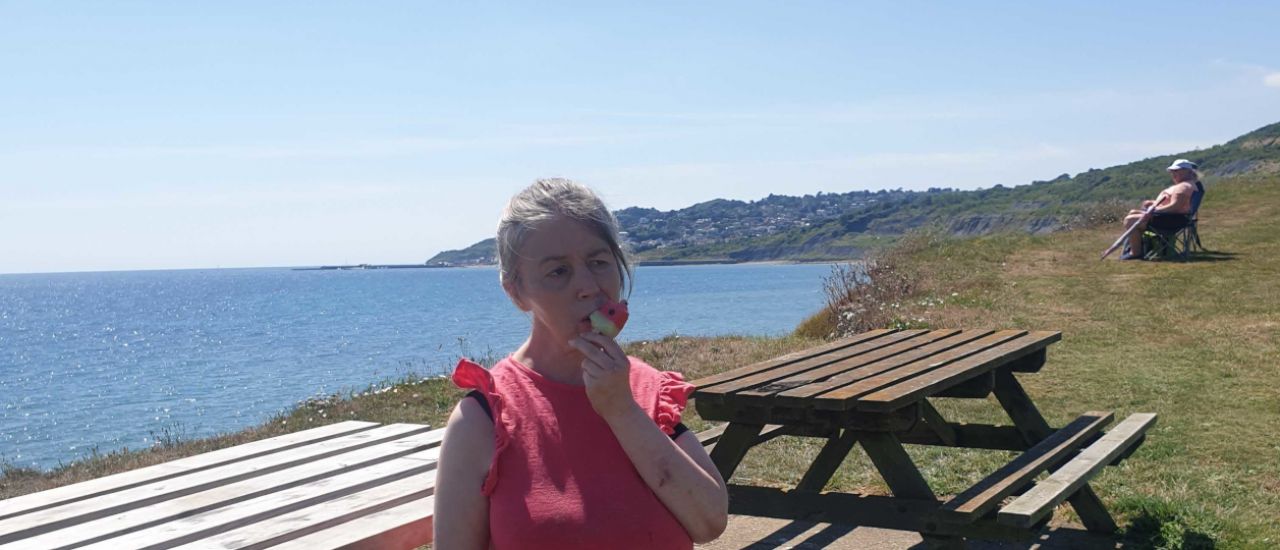
24 July 2019
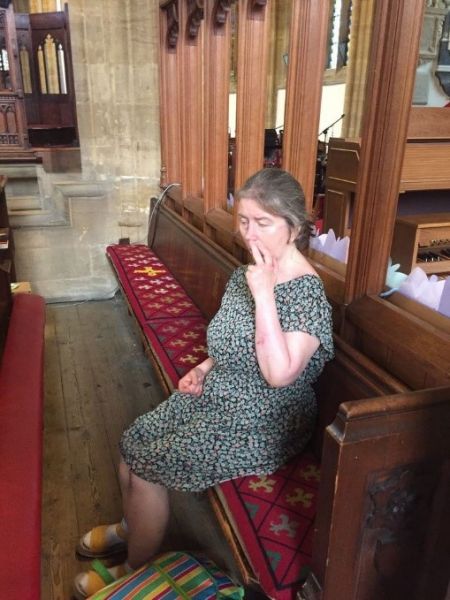 M is a lady with complex autism, acute sensory sensitivity and bi-polar disorder. Andy (You First’s CEO) and Nathalie (Operational Director) have known her for over 30 years and both will tell you that knowing and working with M is a privilege and a joy.
M is a lady with complex autism, acute sensory sensitivity and bi-polar disorder. Andy (You First’s CEO) and Nathalie (Operational Director) have known her for over 30 years and both will tell you that knowing and working with M is a privilege and a joy.
Andy and Nathalie were reintroduced to M in 2017 when You First were approached by her Social Worker with a view to providing support. Meeting her again was a troubling experience as M was not in a good place. Her health outcomes were poor, she had experienced dramatic weight loss, she was seeking sensory stimulation through self-injurious behaviour, her behaviour was highly ritualistic, she was experiencing continual high arousal levels and she appeared to have lost many of her previous skills. M was a very unhappy woman; she had lost all concept of where she was in the world and this was very distressing to witness.
Andy and Nathalie sat with M’s Social Worker and explained our Design4Life! approach to support and how planning, including finding a bespoke property, were all key to securing positive outcomes for her. However, You First was provided with very little time to move which was a significant challenge to our person-centred approach to support. Due to circumstances that were outside anyone’s control we had a calendar month to find M a home, recruit a team and to get that team trained in how to support M's very varied and highly complex needs. It wasn’t an ideal situation at all but in M's best interest we were required to move swiftly.
Nathalie remembers fondly the day that M moved into her new home. “M walked around the entire house, going into each room, smiling and saying ‘nice’ repeatedly as she acclimatised to her new environment”.
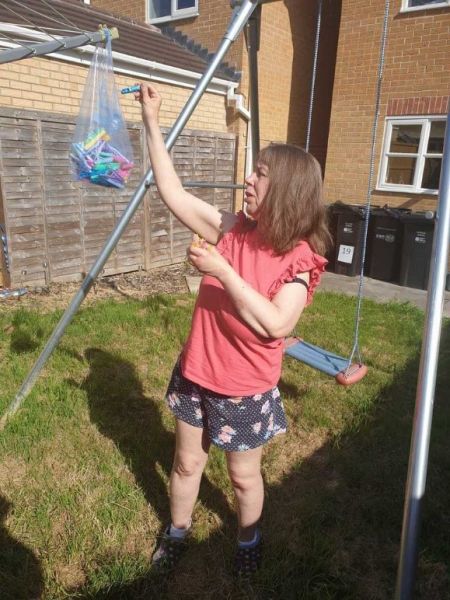
It became apparent very quickly that things within M’s home needed to change in order for her to manage her sensory sensitivity. The kitchen was a clear trigger with M emptying the fridge of its contents on a regular basis together with the cupboards and drawers. Similarly, M would empty cupboards in the living room. M was telling us in no uncertain terms that there was just too much “stuff” around. M's team set to work re-organising her environment so that it supported her. Who says a freezer needs to live in a kitchen? M purchased one specifically built for outside storage and it now sits in the garage. The kitchen had all its “visual noise” removed and this together with the erection of a stable door that gave M direct control over how and when she experienced her kitchen and thus control stimulation levels. All these actions led to a low stimulus low arousal environment that supported M to start enjoying her life.
M’s level of self-injurious behaviour was significantly high. The environmental changes supported a dramatic reduction in this, together with the team being supported to understand the function of these behaviours and how to conduct functional analysis themselves. It became apparent that this behaviour, and sometimes M’s need to make forcible contact with staff was all about M understanding where her body ended and the rest of the world, including other people, began. She was working to understand her physical place in this world and to make sense of it.
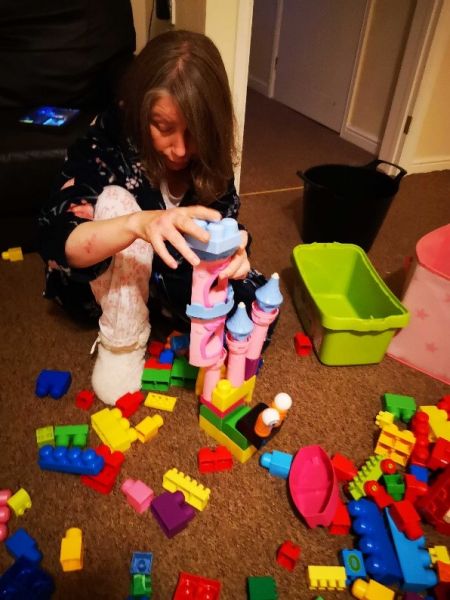 Together with these environmental and psychological approaches we became aware that M had not visited a dentist or had any medical interventions for many, many years. M was being treated extremely regularly for recurrent ear infections yet there was little evidence base for what was actually going on for her. M was extremely well supported by the Dental Access Centre and via a Best Interest Meeting involving family and key professionals it was agreed that it was in M’s best interest to have a range of medical investigations whilst having her dental treatment. This has led to M enjoying far more positive health outcomes than she was previously experiencing.
Together with these environmental and psychological approaches we became aware that M had not visited a dentist or had any medical interventions for many, many years. M was being treated extremely regularly for recurrent ear infections yet there was little evidence base for what was actually going on for her. M was extremely well supported by the Dental Access Centre and via a Best Interest Meeting involving family and key professionals it was agreed that it was in M’s best interest to have a range of medical investigations whilst having her dental treatment. This has led to M enjoying far more positive health outcomes than she was previously experiencing.
Key to M's success was the excellent support we had from Somerset Partnership. Our health colleagues provided a full days training which was superb and that centred completely on M and how best to support her. This all day session was videoed affording the team the ability to revisit aspects of the training when needed. Together with this the writing of an extensive and detailed Positive Behaviour Support Plan that pulled on information from everyone who knew M well together with detail of M’s sensory diet. As time progressed the team were also trained in Intensive Interaction; a communication method that supports meaningful engagement and connection and this communication tool is now central to M’s support.
On-going training and support is key to ensuring consistency of practice. A team is made up of individuals and it’s quite natural for those individuals to have differing approaches. One must also be aware that teams can establish a “group mind” as opposed to following professional guidance. An individual of M’s complexity requires absolute consistency, even to the point of some activities being “scripted” so that everyone says the same thing at the same time and in the same way. A team can be consistent in terms of people but still practice inconsistently if people do their own thing. This high level of training and support enables M to be clear about what is happening now and what will happen next and the provision of such an anchor makes her world safe and M happy.
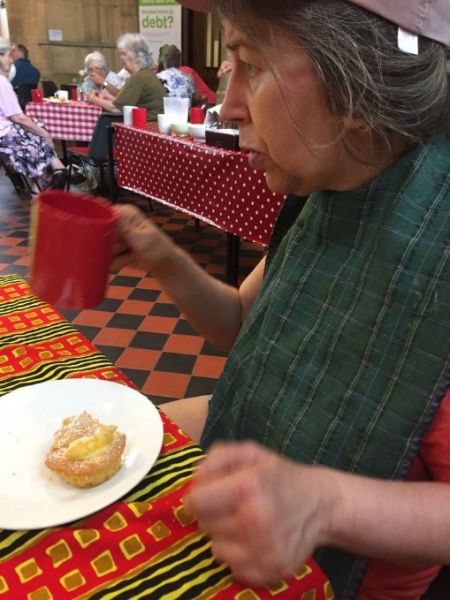 In 2017 M was restricting her diet only eating cheese and salad cream sandwiches. She was also very fond of anything swee! Her team worked hard to introduce a range of foods together with organised menu planning and now she not only eats but cooks a wide range of foods with support.
In 2017 M was restricting her diet only eating cheese and salad cream sandwiches. She was also very fond of anything swee! Her team worked hard to introduce a range of foods together with organised menu planning and now she not only eats but cooks a wide range of foods with support.
In little over a year M was discharged from Psychiatry, Psychology and Occupational Therapy as it became apparent to members of the Community Team that M wasn’t just doing well, she was thriving due to the bespoke support she was receiving. Her prescribed medication has also reduced.
There is a clear requirement to acknowledge the incredible work M’s team have undertaken in getting to know her and work in a truly person-centred and holistic way. There have, obviously, been significant challenges along the way but M’s team have always demonstrated an extraordinary commitment to M and to delivering the positive outcomes she has indicated she wishes to experience. M has a consistent, loyal, committed and well supported team.
In little over 18 months has had something of a journey. When we met her M was “stuck” – quite literally, as can often be the case for people with complex autism. M has taken incredible steps forward since You First started supporting her, including:
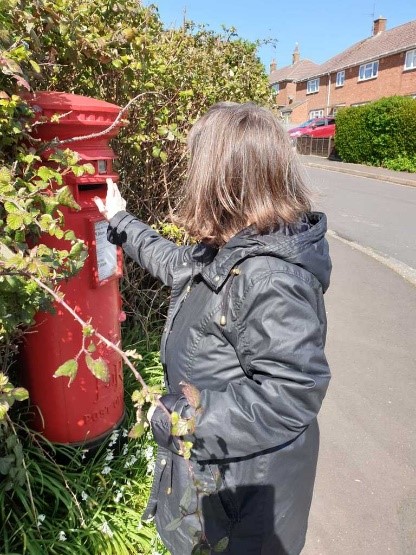
You First exists to enable people to build and grow their lives. M is now enjoying doing just that.
This blog has been written with the full consent and involement of M's close family and the Best Interest process followed.